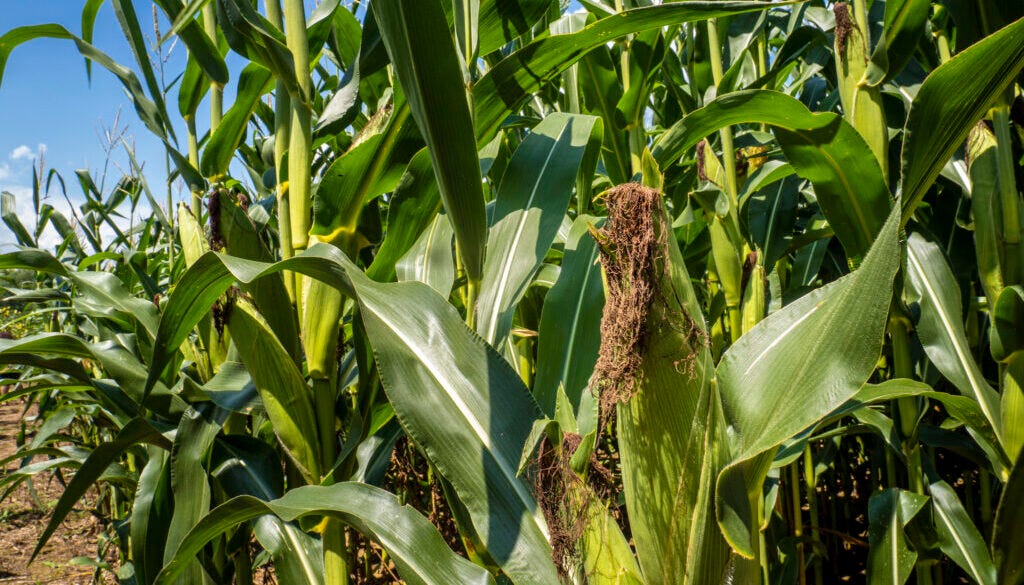Must-read recap: The New Lede's top stories
A new study finds a potential link between a common pesticide and arthritis, and pesticides used in farming contain high levels of PFAS.
New study sees link between pesticide and arthritis
Exposure to a commonly used pesticide could put people at higher risk of developing rheumatoid arthritis, according to a new study.
The findings, published last week in the journal Environmental Science and Pollution Research, looked at potential links between the disease and a class of chemicals known as pyrethroids, which are found in many commercial products used to control insects, including household bug killers, pet sprays and shampoos.
Using data collected as part of a long-term study of US residents called the National Health and Nutrition Examination Survey, the research team said they looked at levels of pyrethroids found in urine samples of the more than 4,000 study participants and analyzed how the exposure correlated with incidences of the disease.
The research team, which was led by scientists from Anhui Medical University in Hefei, China, concluded that levels of pyrethroid indicators in the urine of those who had self-reported a rheumatoid arthritis diagnosis were “significantly higher” than those who had not reported the diagnosis.
More research needed
The work adds to years of scientific research showing that many pesticides are associated with a range of adverse human health impacts, including cancer, neurodevelopmental harm and reproductive problems.
Prior research has also indicated that pesticide use may play a role in the development of rheumatoid arthritis, an autoimmune disease that attacks the joints and can cause pain, bone erosion, and joint deformities. But little work has been done regarding possible associations between specific pesticides and the disease, the researchers said.
The authors write that there is still a “great need” for other research to replicate their findings.
Pyrethroid pesticides are often used to kill mosquitos in outdoor recreational areas and for residential use under brand names that include Baygon, Anvil, and Scourge. People can absorb the pesticide through inhalation, ingestion, or skin contact. (Read the rest of the story.)
High levels of toxic PFAS found in pesticides used in farming
Widely used pesticides contain concerning levels of toxic “forever chemicals” called PFAS, adding to concerns about the human health risks posed by pesticides that are used in growing food, according to a study published last week.
The study found a type of PFAS called PFOS at levels hundreds of thousands of times higher than the Environmental Protection Agency (EPA) considers safe in 6 out of 10 insecticides tested, including malathion, one of the most commonly applied insecticides in the world.
PFOS was found at levels ranging from 3,920,000 to 19,200,000 parts-per-trillion (ppt), far higher than the EPA’s health advisory for PFOS in drinking water, which is set at 0.02 ppt. PFOS is no longer manufactured in the US and has been linked to cancer, as well as problems with the liver, thyroid, and immune system.
PFAS chemicals, including PFOS, were also found in soil samples, corn kernels, string beans, and peanuts that had been sprayed with pesticides at a government research laboratory in Lubbock, Texas, where the study was conducted.
“The level of PFAS absorption by plants detected in this study suggests that this exposure pathway poses a major threat to the safety of our food supply,” Tim Whitehouse, executive director of the government watchdog group PEER, wrote in a Sept. 26 letter to EPA Administrator Michael Regan.
“For this reason, it is quite possible that PFAS in our food is a bigger PFAS exposure pathway than water. This threat is not merely to the safety of U.S. agriculture but of the world’s food supply, as these pesticides are widely applied in other countries,” Whitehouse wrote in the letter.
PEER is calling for the EPA to require that manufacturers test every registered pesticide product and certify that they do not contain PFAS, and to ban the use of pesticides containing PFAS. PEER is also asking the EPA to remove statements from its website saying that registered pesticide products do not contain PFAS. (Read the rest of the story.)


